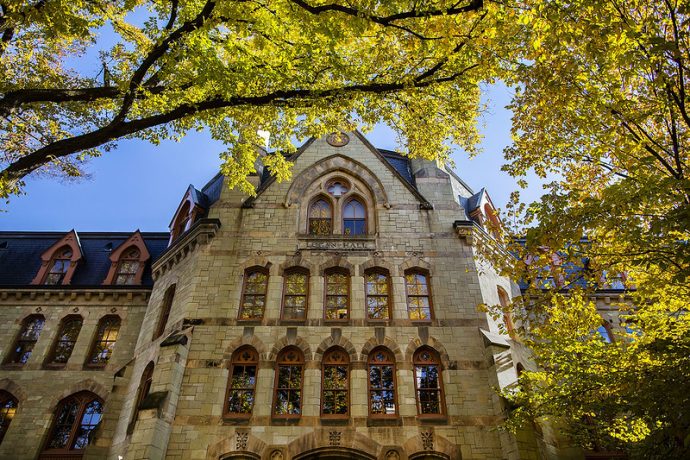- When students (and their parents) can clearly see how humanistic and social scientific ways of thinking connect to future career pathways, they are much more likely to embrace them.
- There is a balance to be struck between flexibility, which allows students to pursue their own interests, and coherence, which assumes that there is a baseline education that everyone in the major receives. In the case of HSOC, there are several large required courses that everyone takes, and which are consistently taught by the same faculty.
- It is important to show students the many multiple pathways that graduates of a program can take. This pushes back against the idea that the humanities have no use.
- Applied programs are also valuable for helping to advocate for more resources for the humanities and social sciences at an institution.
University of Pennsylvania Health and Societies Major

Since 2000, ACLS Consortium Member the University of Pennsylvania has offered a major in Health and Societies (HSOC) through its History and Sociology of Science (HSS) department. HSOC is unique in American higher education, bringing together the disciplines of history, sociology, and anthropology to help students––many of them pre-med or otherwise interested in STEMM (Science, Technology, Engineering, Math, and Medicine) careers––learn how to apply humanistic social science and cultural criticism methods to science, technology, and healthcare.
Professor Beth Linker sees the program as making significant interventions into the healthcare space by giving future clinicians, policy makers, lawyers, and journalists a critical edge and greater cultural sensitivity. HSOC students delve deeply into the social determinants of health and the importance of healthcare in context. The major also allows students to do the social science and humanities work many of them crave, but in an applied form that makes imagining possible career pathways a little more concrete. Students report that it is easier to talk to their parents about the benefits of such a major.
HSOC is designed to provide both breadth and depth, with the understanding that students are going to go on to a wide variety of health-related careers, from traditional medicine to healthcare policy and law, public health, health advocacy, journalism, and more. Because the major is both relatively large and broadly interdisciplinary, the faculty have had to be quite deliberate in creating a coherent and cohesive set of requirements that appeal to students with diverse career goals. To that end, every major takes four core courses:
- Health and Societies or Comparative Medicine
- Quantitative Methods
- Medicine in History
- Medical Anthropology or Medical Sociology
Nine additional courses, many of which are cross-listed among multiple departments, are split between electives and one of the seven concentrations offered through the major, which address particular areas of interest within the field:
- Bioethics and Society
- Disease and Culture
- Global Health
- Health Care Markets and Financing
- Health Policy and Law
- Public Health
- Race, Gender and Health
Additionally, students must complete a capstone project for graduation, which may be done by independent study or through advanced coursework.
At about 250 undergraduates, Health and Societies is a popular major at Penn, often ranking in the top five, and diverse, with over 50% of the students coming from historically excluded or underrepresented student populations. Students often tell the department that they applied to Penn specifically with the intention of majoring in HSOC. At this point, the limiting factor in the number of majors is the number of current faculty lines, which remains relatively low at 13. Linker hopes that eventually, with additional lines, the program will be able to grow and perhaps add a disability studies concentration or certificate.
The HSOC major demonstrates how appealing the humanities and humanistic social sciences can be in their applied forms. Given such an opportunity, students are not only willing but eager to think deeply about their chosen professions and to understand the importance of societal factors in shaping them.

